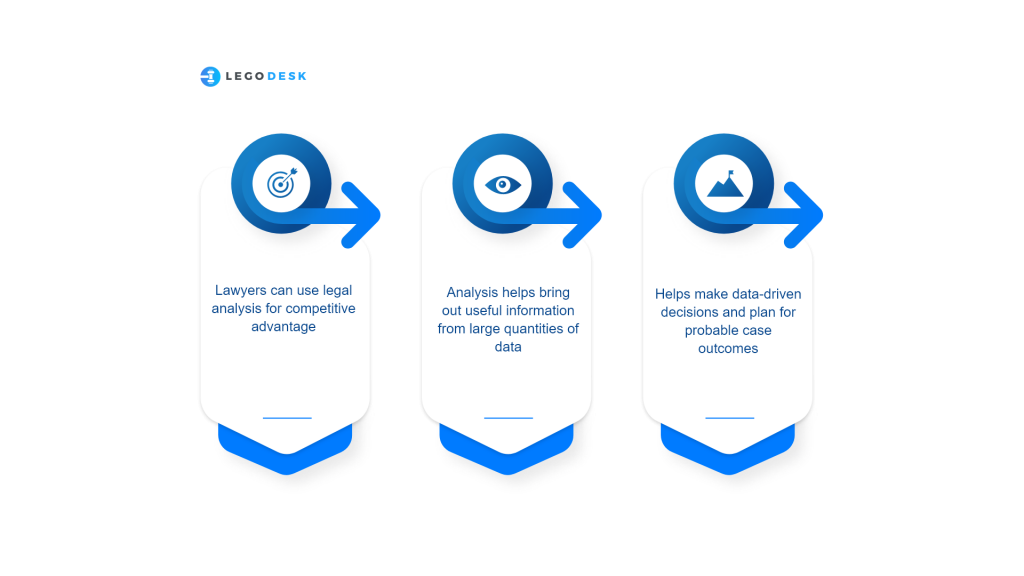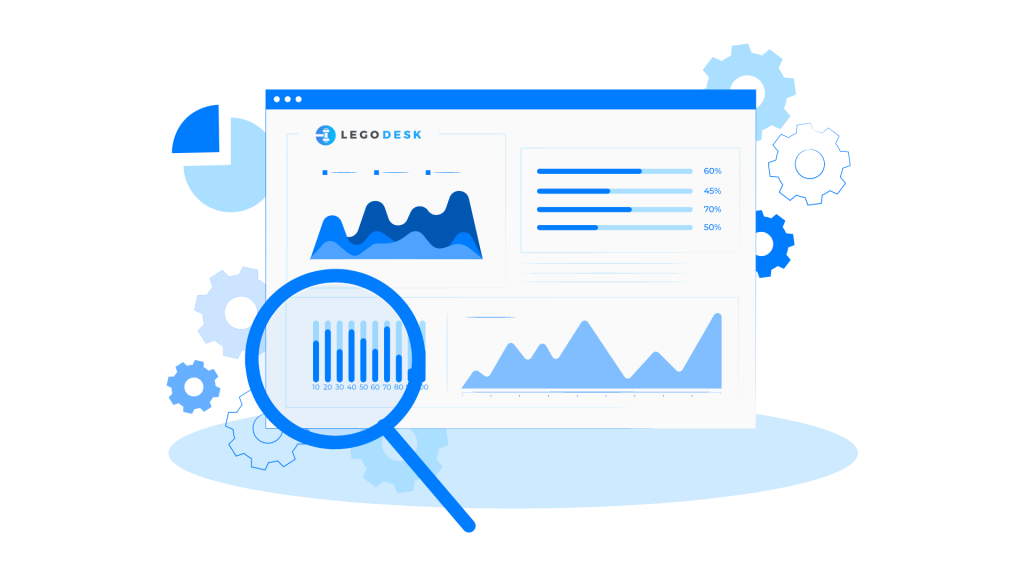Benefits of using data analysis for legal research
In today’s time, it’s not just about the practice of the law, it’s about striving as a business, whether you’re in a corporate sector or a law firm. To win cases, maintain your firm’s budget, and attract more cases, a lawyer must possess both legal understanding and business sense. If you only think about the law, then it’s high time you start thinking about the business also.
Data analysis helps not only in commercial sectors but also in the legal sector. If you run a law firm, then you definitely need data analysis as you would not want to come out as a fool in front of your clients. Through data analysis, you can predict a certain case’s verdict, maintain your firm’s budget, tell how much time a particular case would take, and many other important things.
Hence, without wasting any more time, let’s take a look at what legal analysis is and how it is helpful for lawyers.
Read Also – Here is the Importance of Legal Research in Legal Practice

What is legal analysis?
- Using factual work data to make decisions about respective cases or legal affairs—are one of the most rapid ways to construct a business case for a legal practice. They give a way to lawyers in any situation to earn a competitive benefit, both legally and in terms of business development.
- Legal analysis is the application of law to evidence. There is a particular pattern to legal analysis. This pattern is usually referred to as the IRAC method.
- It is the methodology of bringing out information from large quantities of data. In practice, legal analysis methods are helping lawyers make data-driven judgments on which to construct their legal strategies. That could indicate things like realizing the probability of a specific case outcome, how clearly unassociated cases connect or how much a compensation prize could be.
Read Also – Role of Investigation Case Management Software
The key advantages of data analysis for legal research:

- The opportunities of winning a case could be greater as by analyzing the data of previous trials, valuable acumen could be derived regarding the crucial issues like time, judge’s decision and also specific things that might help the firm cultivate a smarter strategy to win a specific case.
- Cases frequently continue for a long duration before emerging as a loss. To save money and time wasted on a specific case, the legal analysis could assist lawyers to conclude whether to go on or to negotiate.
- Frequently, law firms need to employ external expertise to assist with their case, the decision being expensive must be supported by factual data. With legal analysis, it would be simpler to go through data considering a specific client and his conduct in synonymous cases in the past.
- There could be a crucial development in the field of operational capability. In the maximum situations, lawyers invest a huge amount of time in categorizing case papers and other data. This way they are wasting their time in finding previous information when they could be paying attention in offering consultation to a possible client and attaining another case thereby adding financial advantage to the firm. The task of data analysis should always be dealt with by the legal analytics system.
- At the end of the day a law firm is just a business, so, to guarantee that the business undertakings of the firm are being managed with effectiveness, a legal analysis system could be useful. Whether it’s cost management or hiring or maintaining old staff, important information could be gained, which could be directed to get in more profit.
- By picking data from your case management system, you can get an immediate “at a glance” judgment of your development on operations, business improvement, and particular matters. These illustrated dashboards and charts allow people to see how they are operating against timelines and funds so they can immediately know whether they’re on path or stumbling behind with project fulfillment, and billing. Where do you have blockages, and what help do you need to get rid of them?
- Companies expect that every department—including legal—will use data to enhance its work and support its presence, its staff, and its budget. Analytics offer a type of ethical cycle: not only will visual portrayals of data help you negotiate your department’s advantages to management, but compiling that data will also prompt you to boost your performance over time.
Read Also – Why Law Firms Should Care About Data Security
Is your law firm taking full benefit of its data through analytics tools? If not, this is the time to commence. Your preliminary effort doesn’t have to be complex or costly; in fact, it’s reasonable to start little, gain some success, and grow into more complicated experiments over time. Look at the data you’re already compiling via your e-invoicing and case management systems and start inquiring about the issues. Use that data to produce a few thorough reports and adjust your work execution. As you analyze the results, formulate new questions, and discover the new data to answer those questions, your analytical strategy will be off and running.

Which software to choose for legal analysis?
You must be anxious to know the answer to this question, it’s Legodesk. It is the best upcoming legal management system with various features for lawyers and law firms. With Legodesk’s integrated platform, you can track down cases and case time with ease, track down information with a simple search option, connect safely with your team and clients, etc. Other than the legal analysis features, you also get features like e-billing, sending automatic email notifications, form template creation, and so much more. The best part is you get a 14-day free trial and you can cancel anytime you want. Now you won’t have to worry about any case or about the functionality of your firm as Legodesk is here to help you.